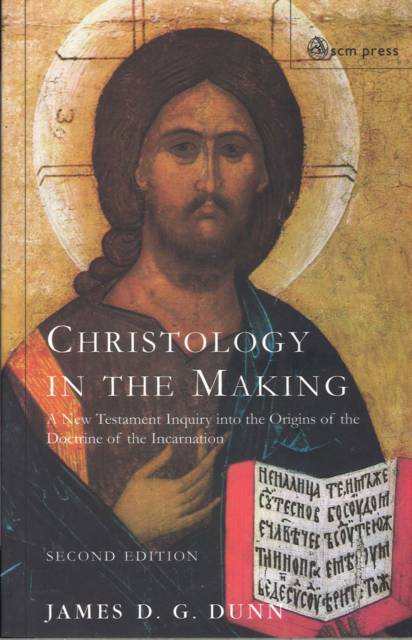
En raison de l'affluence sans précédent, votre commande online avec livraison à domicile peut actuellement prendre un peu plus de temps que prévu. Besoin de quelque chose d'urgence ? Choisissez de retirer dans un magasin avec du stock. Nos magasins vous accueillent à bras ouverts !
- Retrait gratuit dans votre magasin Club
- 7.000.000 titres dans notre catalogue
- Payer en toute sécurité
- Toujours un magasin près de chez vous
En raison de l'affluence sans précédent, votre commande online avec livraison à domicile peut actuellement prendre un peu plus de temps que prévu. Besoin de quelque chose d'urgence ? Choisissez de retirer dans un magasin avec du stock. Nos magasins vous accueillent à bras ouverts !
- Retrait gratuit dans votre magasin Club
- 7.000.0000 titres dans notre catalogue
- Payer en toute sécurité
- Toujours un magasin près de chez vous
Christology in the Making
A New Testament Inquiry Into the Origins of the Doctrine of the Incarnation
James D G Dunn
55,95 €
+ 111 points
Format
Description
In a period when popular studies can easily oversimplify the issies and evidence, this classic text ixdentifies in rich detail the beginnings of the full Christian belief in Christ as the Son of God and incarnate Word. What would it have meant to first-century ears that Jesus was called 'the Son of God'? How and when did the first-century Christians begin to think of Christ as pre-existent? What claims were being made for Christ when he was called 'the Son of Man' and 'the last Adam'? Was Jesus considered to be an angel, an archangel, or angel of the presence, either before or after his time on earth? How would the ancient world have conceived the difference between inspiration ad incarnation? The author illuminates the first-century context of meaning of key titles and passages within the New Testament. He shows that there is a danger both of reading too much into such statements and of failing to appreciate the distinctiveness of the early Christian claims concerning Christ. Dunn explores the fact that Jesus was hailed both as last Adam and as God's Wisdom, both as spirit-inspired and as Word incarnate. Christology in the Making exposes the tension within first-century Christian understandings of God and Christ which came to subsequent expression in the doctrine of the Trinity, demonstrating how talk of Christ as 'God incarnate' is better grounded in the New Testament and its 'context of meaning' than talk of Christ in terms of 'the myth of heavenly or divine being come to earth'. This classic text is an essential resource for students and researchers alike. James D. Go. Dun was Professor of Divinity at the University of Durham. 'an excellent presentation of a mass of complicated material...to be commended for its honest attempt to set Paul et al in the eschatological setting of the earliest Christian Gospel than reading their statements through the incarnational spectacles of later developments'. Theology
Spécifications
Parties prenantes
- Auteur(s) :
- Editeur:
Contenu
- Nombre de pages :
- 490
- Langue:
- Anglais
- Collection :
Caractéristiques
- EAN:
- 9780334029298
- Date de parution :
- 12-07-10
- Format:
- Livre broché
- Format numérique:
- Trade paperback (VS)
- Dimensions :
- 156 mm x 234 mm
- Poids :
- 680 g







